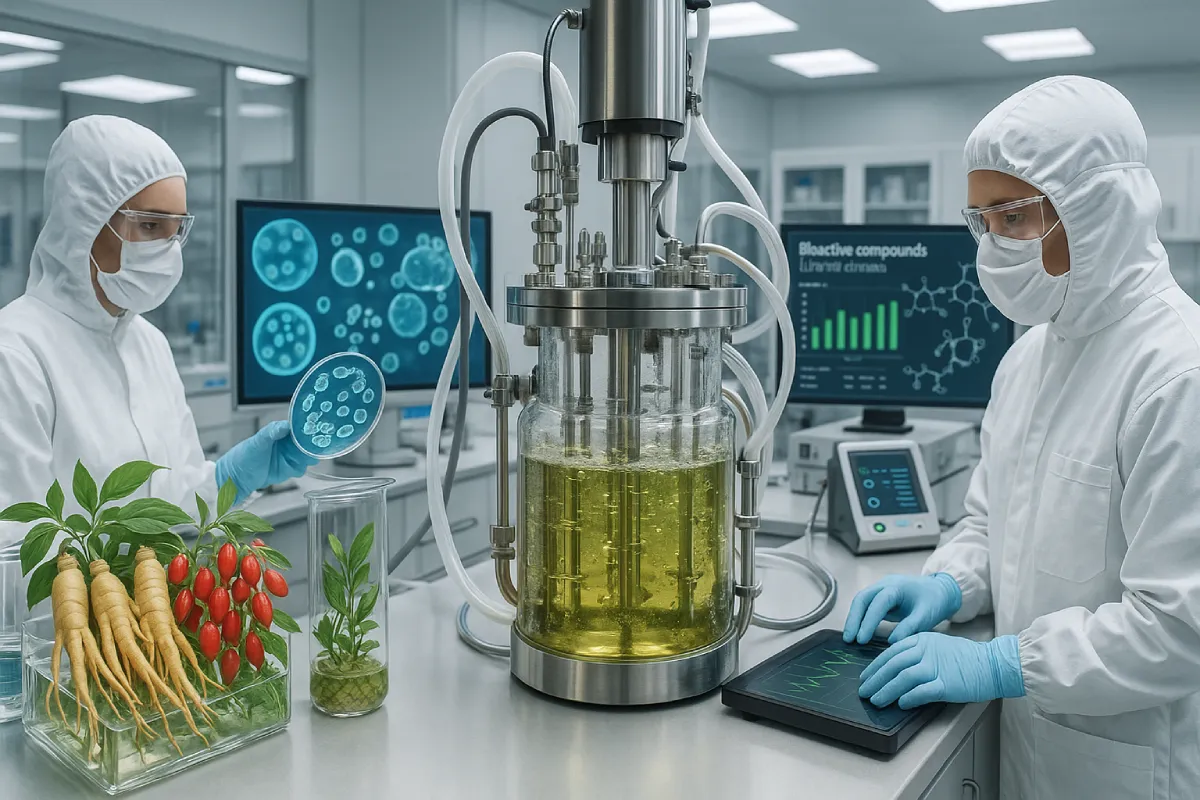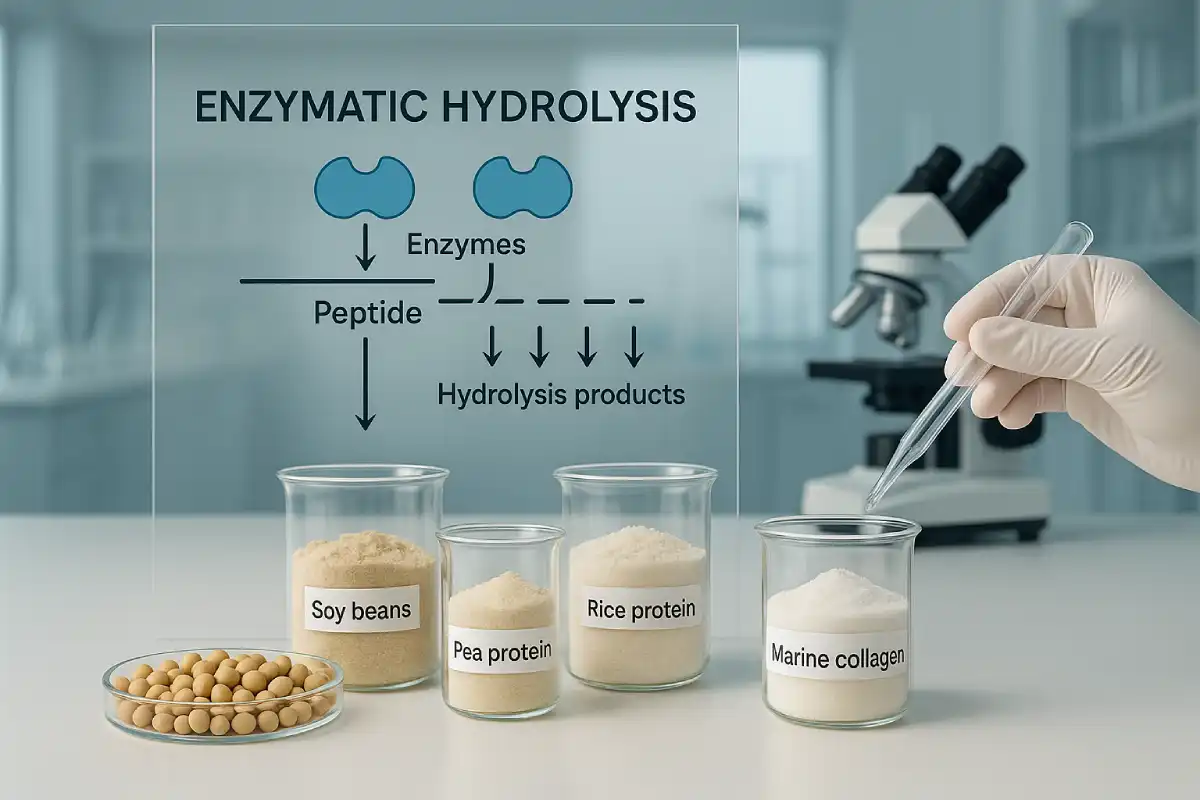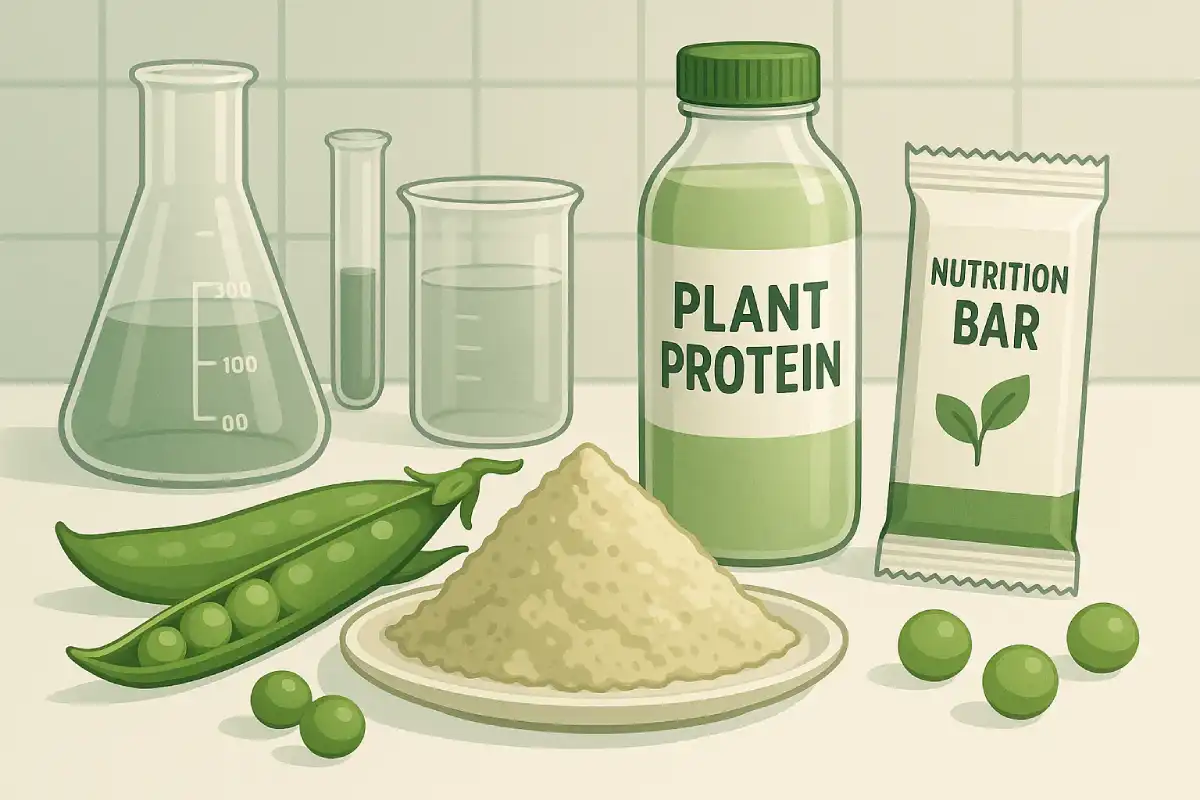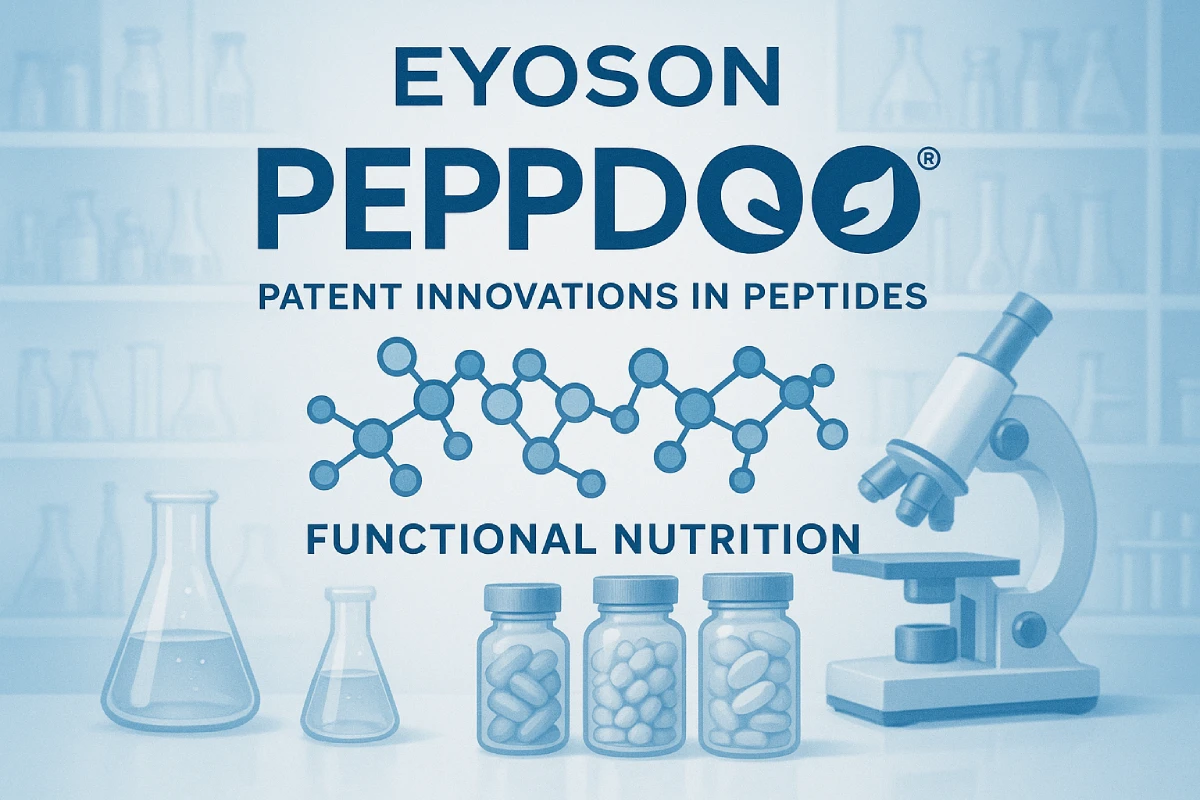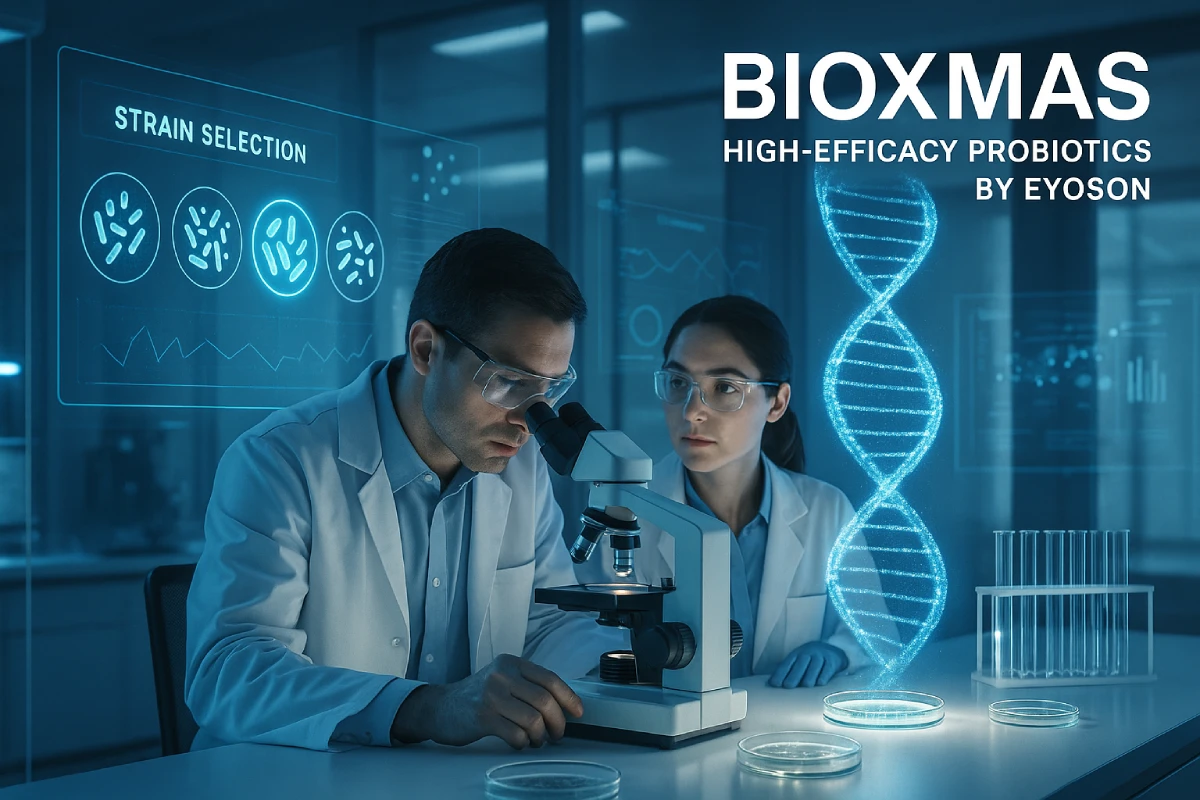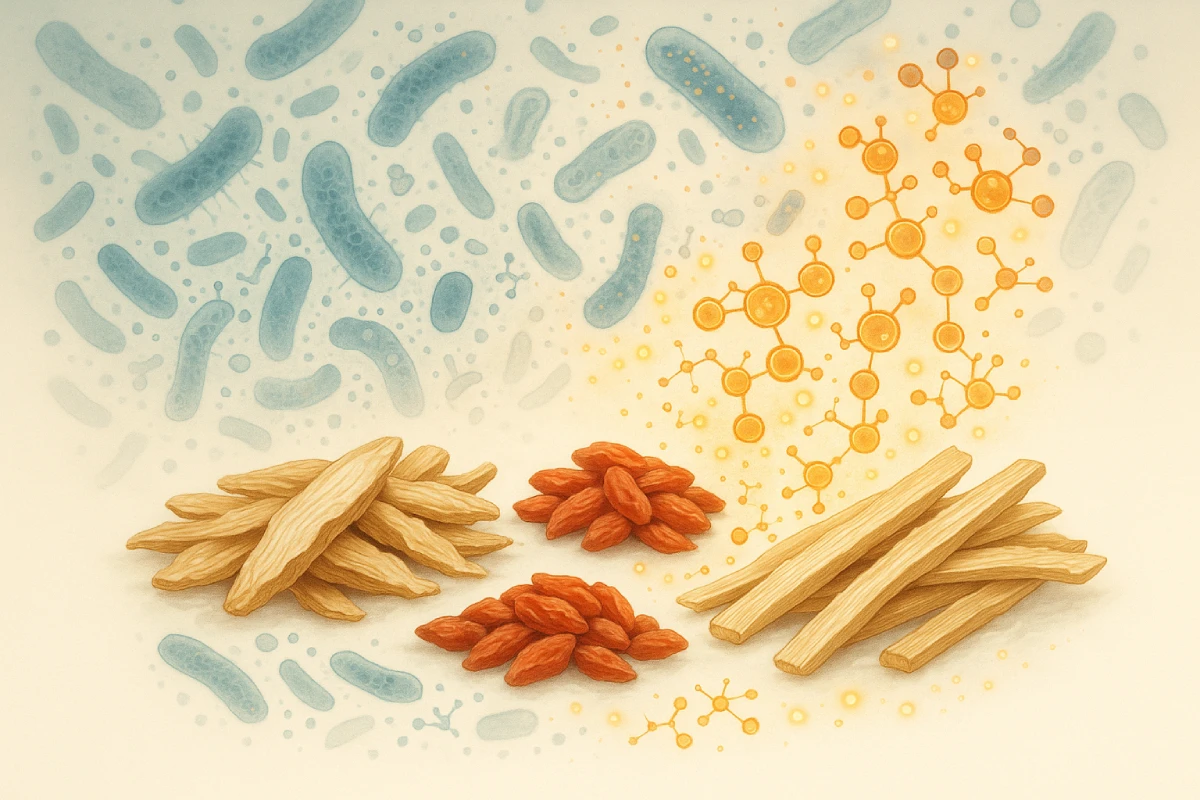Why Pea Peptides Are the Rising Star in Functional Foods: Sustainability, Bioactivity, and B2B Potential
In recent years, pea peptides have emerged as a highly promising plant-based protein source for functional foods. As B2B decision-makers in the functional nutrition industry, understanding the benefits of pea peptides is crucial for product development, innovation, and supply chain optimization. The global demand for sustainable, clean-label, and plant-based protein ingredients is rising rapidly, with functional foods and nutraceuticals driving much of this growth [1].
PEPDOO®, a full-range peptide manufacturer, is at the forefront of this innovation. With a leadership role in establishing China’s peptide industry standards, a patent portfolio that ranks among the top for small-molecule peptides in China, and internationally advanced peptide manufacturing technologies, PEPDOO® delivers high-quality, consistent pea peptides suitable for diverse B2B applications.
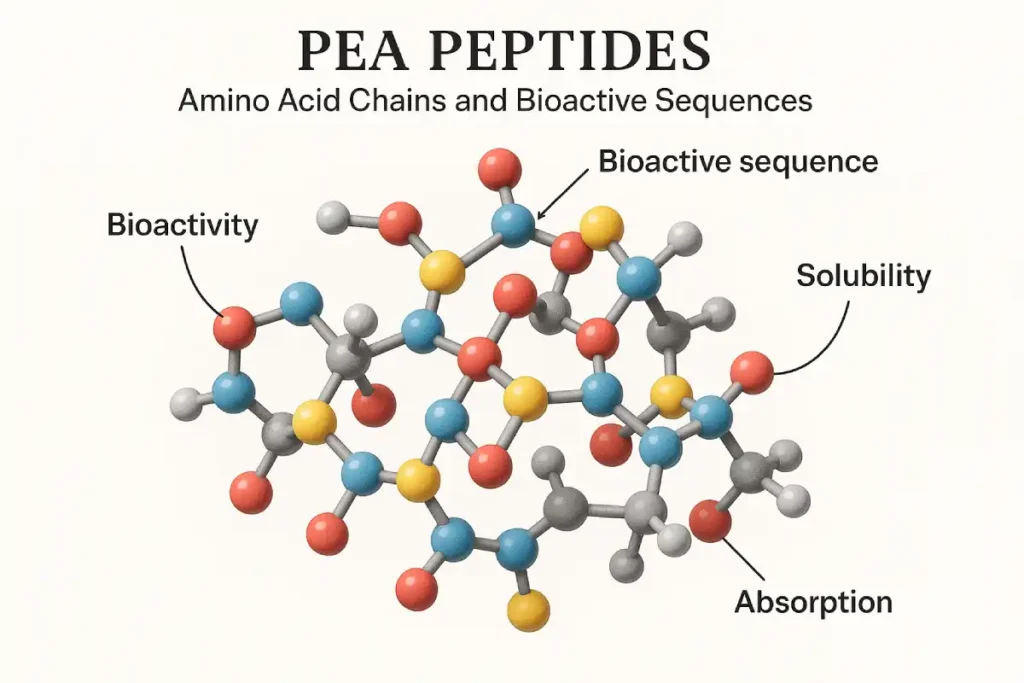
Understanding Pea Peptides: Structure, Bioactivity & Applications
Pea peptides are short-chain bioactive proteins, typically composed of 2–6 amino acids, produced via controlled enzymatic hydrolysis of pea protein isolates. Compared to traditional pea protein powders, pea peptides exhibit higher solubility, improved absorption, and reduced allergenicity. These characteristics make them ideal for functional foods where taste, texture, and bioavailability are critical [2].
Molecular Structure and Bioactivity
The hydrolysis process exposes bioactive sequences that can enhance metabolic, cardiovascular, and immune functions. Studies demonstrate that pea peptides can modulate satiety hormones, support muscle protein synthesis, and improve gut microbiota balance, which are key considerations for B2B functional food development [2].
Difference Between Pea Protein and Pea Peptides
Unlike whole pea protein powders, pea peptides are low-molecular-weight, water-soluble, and easier to incorporate into beverages, nutrition bars, and specialized medical nutrition products. PEPDOO®’s patented hydrolysis technology ensures uniform molecular weight distribution and consistent bioactivity across production batches, a critical advantage for B2B formulators.
Functional Benefits of Pea Peptides for B2B Functional Food Development
Pea peptides offer versatile functional benefits, allowing B2B customers to create innovative and effective products. These benefits span muscle recovery, metabolic health, gut health, and clean-label plant-based applications.
Muscle & Sports Nutrition
Pea peptides exhibit high bioavailability, promoting faster muscle protein synthesis. For example, a European sports nutrition brand integrated PEPDOO® pea peptides into their recovery beverages, resulting in a 15% improvement in post-exercise muscle protein synthesis compared to traditional protein formulations [1].
Metabolic Health & Weight Management
Pea peptides support appetite regulation and glucose metabolism. B2B customers can leverage these benefits in functional beverages or bars aimed at weight management and metabolic health. In Asia, a functional beverage brand replaced part of their whey protein with pea peptides, achieving reduced allergenicity and improved plant-protein content.
Gut Health & Immunity
Pea peptides can positively interact with gut microbiota, enhancing nutrient absorption and immune modulation. Formulators can incorporate these bioactive peptides into specialized medical nutrition or immunity-support products, adding measurable functional claims.
Clean Label & Vegan Advantage
With rising consumer preference for plant-based, non-GMO, and allergen-free ingredients, pea peptides provide a competitive edge. PEPDOO® ensures traceability and compliance with international food safety standards, giving B2B customers confidence in labeling and marketing claims.
Sustainable & Scalable Manufacturing of Pea Peptides
Sustainability and scalability are key considerations for B2B customers sourcing functional ingredients. PEPDOO® employs patented hydrolysis processes that allow precise control of molecular weight and bioactivity. This scalable production meets global functional food brand demands while maintaining quality and consistency.
Patented Hydrolysis Process & Molecular Weight Control
PEPDOO®’s proprietary enzymatic hydrolysis ensures consistent molecular weight distribution, maximizing bioactivity and solubility. Each batch undergoes strict quality control to meet international standards such as GMP, ISO, and FSSC.
Scalable Production & Global Supply
Our manufacturing facilities are capable of large-scale production, serving B2B customers worldwide. This ensures uninterrupted supply for nutritional bars, beverages, sports supplements, and specialized medical nutrition products.
Quality Assurance & Regulatory Compliance
PEPDOO®’s role as an industry standard setter guarantees that all products comply with local and international regulations. From allergen management to clean-label requirements, B2B customers can rely on PEPDOO® for regulatory guidance and high-quality ingredients.
Applications & Success Stories in Functional Foods
B2B clients can integrate pea peptides across multiple functional food categories. Below are examples of successful applications:
- Nutritional Bars & Beverages: A North American brand increased protein content by 10% while maintaining solubility and taste.
- Sports & Protein Supplements: European brands reported faster muscle recovery and enhanced product absorption.
- Specialized Medical Nutrition Products: Hospitals and clinical nutrition companies improved nutrient absorption and patient compliance by using pea peptides in enteral formulations.
These real-world applications demonstrate the versatility and functional efficacy of PEPDOO® pea peptides for B2B customers across global markets.
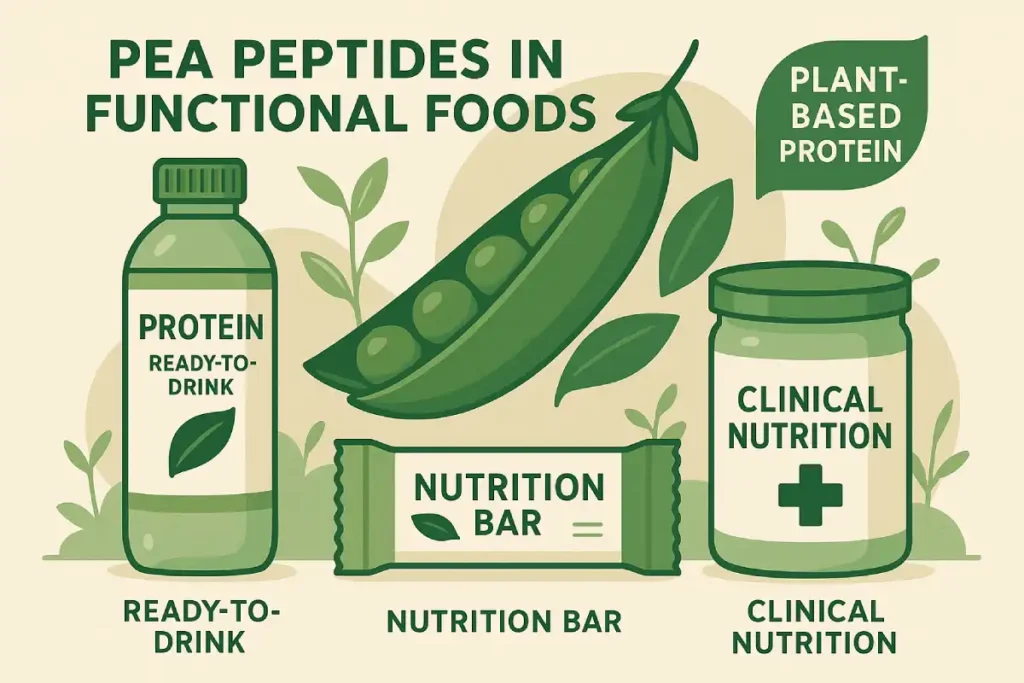
Why Choose PEPDOO® for Pea Peptides
PEPDOO® is a trusted global supplier of bioactive pea peptides, offering full-range peptide solutions for B2B functional food brands. Key differentiators include:
- Full-range peptide manufacturer, covering plant-based and animal-based peptides.
- Leading Chinese small-molecule peptide patent portfolio and industry standard setter.
- Internationally advanced peptide manufacturing technology ensuring high-quality, bioactive, and scalable ingredients.
- Customizable formulations for sports nutrition, immunity, gut health, and specialized medical nutrition.
Contact PEPDOO® to Source High-Quality Pea Peptides for Your Functional Foods
B2B brands can request samples, formulations, and consultation to integrate PEPDOO® pea peptides into innovative functional foods. Request Your Sample or Consultation Today!
Partner with PEPDOO® to Source High-Quality Pea Peptides for Functional Foods
PEPDOO® is your trusted global peptide manufacturer, offering full-range pea peptides with patented technology, consistent bioactivity, and scalable production. As a B2B partner, you can leverage our expertise to:
- Obtain high-purity pea peptides suitable for beverages, nutrition bars, sports supplements, and medical nutrition products.
- Access OEM/ODM services for custom peptide blends targeting specific functional claims such as muscle recovery, metabolic health, immunity, or gut support.
- Ensure regulatory compliance and consistent batch-to-batch quality for international markets, backed by GMP, ISO, and FSSC standards.
- Receive technical consultation, formulation guidance, and sample testing to accelerate your product development and market launch.
Take the next step to innovate with PEPDOO® pea peptides and deliver functional, plant-based, and scientifically validated products to your customers.
Request Your Sample or Consultation TodayFAQ
Pea peptides from PEPDOO® are highly water-soluble and stable across pH 3–8, making them suitable for ready-to-drink beverages, protein shakes, nutrition bars, and powdered formulations. Solubility data is tested per batch to ensure consistency for B2B production.
Yes. All PEPDOO® pea peptides are sourced from non-GMO peas and undergo strict allergen control processes. They comply with international clean-label standards, providing B2B customers confidence for product marketing and regulatory submissions.
Absolutely. PEPDOO® offers OEM/ODM services, including molecular weight adjustment, bioactive peptide enrichment, and combination with other functional ingredients. Custom blends can target sports nutrition, metabolic health, immunity, or clinical nutrition applications.
Dosage depends on product type and functional claim. Typical ranges: 1–5g per serving for beverages and protein shakes, 2–10g per serving for meal replacement or medical nutrition products. PEPDOO® can provide formulation guidance based on bioactivity and regulatory limits.
PEPDOO® employs patented enzymatic hydrolysis processes, strict molecular weight control, and GMP-compliant production. Each batch is tested for solubility, bioactivity, and peptide profile to guarantee consistency, critical for B2B product reliability.
Yes. PEPDOO® pea peptides comply with global food safety standards (GMP, ISO, FSSC), non-GMO certification, and allergen management protocols. Regulatory documentation can be provided to support B2B export to Europe, North America, Asia, and other regions.
Yes. Clinical and in vitro studies show pea peptides can support muscle recovery, metabolic health, satiety, gut health, and immunity. B2B formulators can leverage these bioactivities for functional claims, labeling, and marketing advantages.
PEPDOO® offers flexible MOQs depending on formulation and customization. Lead times typically range from 4–8 weeks for bulk production, with options for sample batches to support product development and early-stage testing.
References
[1] Smith, J., & Lee, K. (2022). Plant-Based Proteins in Functional Foods: Trends and Opportunities. Journal of Nutritional Science, 11(3), 45-59.
[2] Zhang, Y., & Wang, H. (2021). Bioactive Peptides from Pea Protein: Production and Health Applications. Functional Foods Review, 8(2), 112-128.
